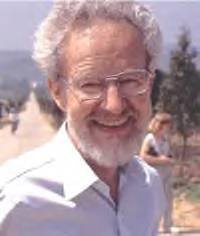
Robert Rodale (rodale pictures)

Save Three Lives
There were lots of important news stories in this morning's paper; one of those days that reminds how hard it is to keep up. A free press is essential, of course, but it's discouraging to be reminded how much really important news passes by with barely a glint of attention; surely my attention deficit isn't uncommon.
Collecting links for the blog is something new, so I'm just discovering that many articles in the printed edition of the Pittsburgh Post-Gazette don't appear in the online edition. It's good the P-G is devoting space for African coverage. I suppose the absence on their Web site has something to do with “exclusive news.” A New York Times article by Michael Wines, Millions starving in southern Africa, ran today. Here's Wines' report from Tuesday's NYT. Next to it the P-G ran a photo with the headline Election Strife In Zanzibar placed center above the fold. Quite different stories, and a rare day when the paper covers two stories from the African continent.
The famine in Niger received attention in July and although Michael Wines is reporting from Malawi and about the hunger crisis in southern Africa, he updates the story from Niger in today's piece.
I was a late adopter of the Internet. Our friend Sheila got me online— thank you. I loved chat, and the abundance of news. Soon after going online, I mentioned to Sheila that I was meeting people from all over the world, except Africa. I also related a news account of famine in Ethiopia to her. She said, “Have I got the book for you.” And the next time I saw her she presented me with a copy of Save Three Lives: A Guide for Famine Prevention by Robert Rodale.
The book was published in 1992 and Rodale, editor of Organic Gardening, died in an automobile accident in Russia only days after sending the manuscript to the printers. Rodale makes the point that once a famine has begun it's too late. He wasn't advocating against food relief. Rather pointing out that without attention toward famine prevention, famines will re-occur in self-promoting cycles.
His book provides a devastating critique of development schemes that are detached from the real lives of people they were meant to help; usually plans made in capital cities or in far away countries. He proposed that smaller and more local efforts had a better chances for success. The preference for local initiatives extends to people in rich countries who want to help; hence the book's title: Save Three Lives.
I was impressed by his arguments. Easily, perhaps because I read his column in Organic Gardening for years so knew him to be a serious and compassionate thinker. Also being new to the Internet, I was primed to see how the Internet could greatly facilitate making his vision of millions of people making a difference: person to person.
I watched the episode Delivering the Goods, part of PBS RX for Survival series— that's the one Mark Knobil filmed. The episode provides good evidence how Rodale's approach really works.
In my typical “fools rush in where angels fear to tread” fashion, I plunged right in, looking for Africans to correspond with. Truly good fortune to have met someone as earnest and good as Magumba Nathan right off the bat. The hard part has been finding others here in my locale to work with. Finding ways to lend support for Nathan and his community has been quite a challenge.
There are lots of opportunities for giving money to very worthy organizations. And there are many opportunities now to assist in grassroots efforts through organizations, Kiva is a very good example right along the lines of what Rodale proposed.
The good work of Robert Rodale continues today. The picture of Rodale came from a tribute to Robert Rodale by his son Anthony at the Seeds of Change Web site. You can find out more about the Rodale Insitute at their very informative site.
Suppose there's a number of people committed to the idea of saving three lives among the world's poor. Could we be more successful and more effective if we shared and helped one another in our missions? The answer to the question seems obviously affirmative, but just how to begin that sharing isn't so easily answered.
This blog is an attempt to explore how we can help each other to help. The problems humankind face are enormous. Even Hercules couldn't tackle the whole of the problem. Still everyone can address a part of the problem and make a significant difference.
No comments:
Post a Comment